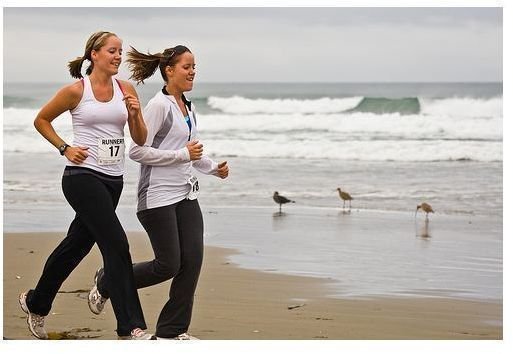GPS Devices For Runners: Do You Really Need One or is a Footpod Sufficient?
Do You Need a Footpod or a GPS Device, and How Much Should You Spend?
If you’re a runner, then you already know enough to know that the above is a big decision to make. If you’re a newbie runner, then it may be a decision you are currently struggling with. First, a couple of definitions. A footpod is a device that uses your stride length to measure your run: you can calibrate over a known distance at a realistic speed, thus enabling you to measure the distance you have run on subsequent outings. An athlete’s GPS device, on the other hand, utilizes GPS technology in order to pinpoint a runner at all points of his or her run and thereby provide information on distance run and speed.
What are the good and bad points of a footpod? How do you know whether one will suffice for your needs or if you will be better off shelling out for GPS? To begin with a footpod is significantly cheaper than an athlete’s GPS device. (A casual trawl through the first couple of pages of results for Google Shopping reveals a minimum expenditure of under £50 is possible. For a GPS device, on the other hand, sufficient change out of £150 to buy two rounds of drinks is unlikely judging by the same test). This difference may make the footpod a good first choice for the newbie runner who is a little unsure of his commitment for the long haul.
Are There Problems Associated with Buying a Footpod, as Opposed to a GPS Device?
There may be problems regarding accuracy with the cheaper device.1 Some runners complain that despite careful calibration, their footpod produces inconsistent results even when used over a known distance. It has also been observed by some that it is necessary to run at the same speed as that used when calibrating the device in order to achieve accurate results.2 You may also find that alterations in gait or even different running shoes may affect results.3
Obviously a drawback of the footpod option is that it will only record how far you have been and not where, (although hopefully you have some notion of that yourself) and you can’t load your route into mapping software to take a look at it and make comparisons.
Is There an Upside to Footpods? Do You Need a Footpod and GPS Together?
Given the drawbacks of footpods, what is the upside of the cheaper option? The footpod does at least measure every step you take (leaving aside the issue of accuracy). There are reports that some GPS devices may encounter problems when used for running in repetitive spirals or circles, e.g. up the floors of a multi-story carpark, failing to account for more than one lap.4
It’s also good to bear in mind that footpods will work in all terrains and under any kind of cover, e.g. under heavy tree cover or indoors – something else to keep in mind for torrential rains when you’d really rather be on an indoor track, or when you fancy breaking up your usual routine with a detour down a lovely leafy lane. Just to complicate matters, you may want to combine a GPS device with a footpod to make allowance for these gaps in coverage and account for cadence (steps per minute).
Footpods are also lightweight, easy to set up, and some models do not require re-calibration when you change the battery (although the same may not apply to the watch portion). So, in the end: footpod or GPS? It’s down to you: and it’s a tough decision to make!
References
1. Downey, S. ‘The Trouble With Footpods.’ https://gear.runnersworld.com 13/09/2007. (29/08/2009). https://gear.runnersworld.com/2007/09/the-trouble-wit.html
2. https://forum.polar.fi ‘G1 GPS Vs Footpod .’ https://forum.polar.fi 12/09/2008. (29/08/2009). https://forum.polar.fi/showthread.php?t=647
3. https://www.runnersworld.co.uk ‘Which Garmin Should I Get And Why?’ https://www.runnersworld.co.uk 02/06/2009. (29/08/2009). https://www.runnersworld.co.uk/forum/forummessages.asp?dt=4&UTN=139691&last=1&V=1&SP=
4. Welsh, Alex. ‘RW Review: Garmin Forerunner 50.’ https://www.runnersworld.co.uk 2002-2009. (29/08/2009). https://www.runnersworld.co.uk/news/article.asp?uan=3260
